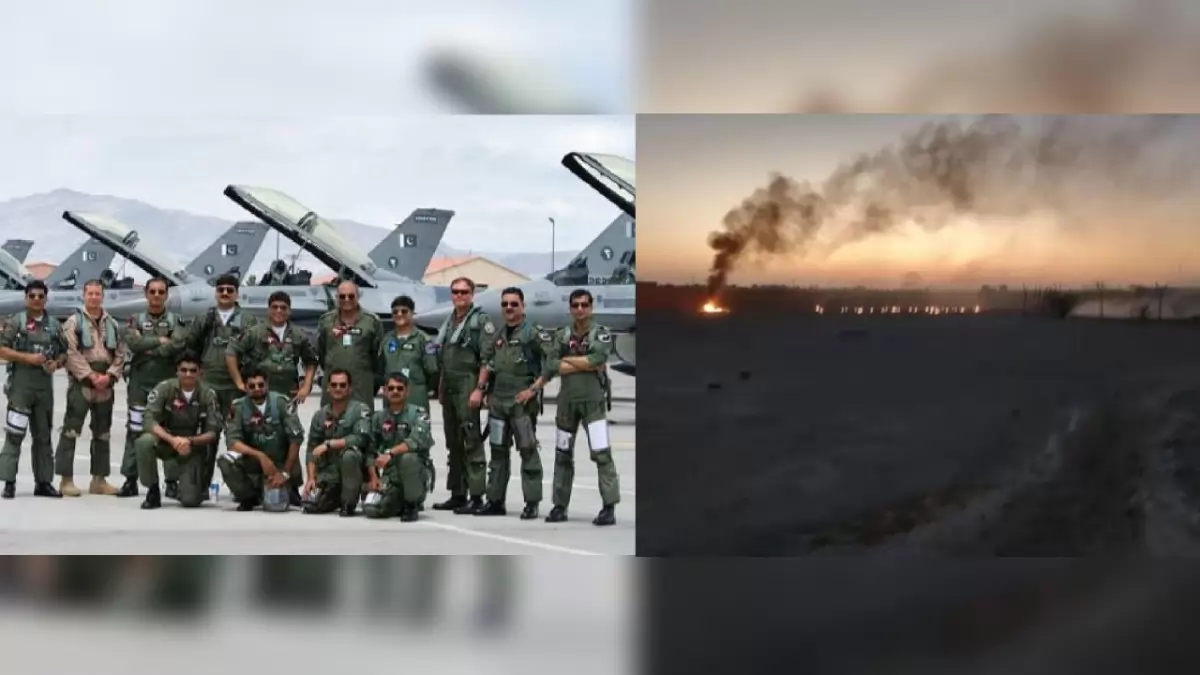
X/visegrad24
Islamabad: Pakistan has launched what it termed "highly coordinated" military strikes against Iran, escalating tensions between the two neighbouring nations. The move comes just over 24 hours after Iranian air raids targeted Balochistan, sparking fears of a wider conflict. In response to the Pakistani strikes, Iranian state television reported at least nine casualties and summoned the senior-most Pakistani diplomat in Tehran for explanations.
Following the strike by Islamabad on Tehran's territory, it becomes the first foreign nation to do so ever since the end of the Iran-Iraq war in the in 1975 after signing the Algiers Agreement.
Pakistan defended its actions, citing "credible intelligence" of "impending large scale terrorist activities" originating from across the border. The operation, codenamed "Marg Bar Sarmachar" (Death to Sarmachar), aimed to counter armed groups in Iran's Sistan-Baluchestan province.
"Pakistan has consistently shared its serious concerns about safe havens for Pakistani-origin terrorists within Iran," stated Pakistan's Ministry of Foreign Affairs. The ministry accused these groups, known as 'Sarmachars,' of conducting attacks on Pakistani soil with impunity.
#Pakistan used 3 drones in #Iran border attack: IRNA news report pic.twitter.com/yyGehyygbh
— Koustuv 🇮🇳 🧭 (@srdmk01) January 18, 2024
Iran's initial air raids, targeting Jaish al-Adl, an armed group near Panjgur city in Balochistan, had prompted a strong response from Pakistan. The Pakistani government deemed the Iranian action "unacceptable" and reserved the right to respond to this "illegal act."
However, Pakistan's Ministry of Foreign Affairs indicated a desire to avoid further escalation. The statement stressed Pakistan's respect for Iran's sovereignty and territorial integrity while underscoring the need to protect national security.
China, a close ally of both nations, expressed willingness to mediate and urged restraint. The Chinese Ministry of Foreign Affairs suggested playing a constructive role in de-escalating the situation.
The United States condemned Iran's actions, citing violations of sovereign borders in multiple neighbouring countries. India, traditionally a close ally of Iran, described the situation as a matter between Iran and Pakistan, emphasising its uncompromising position on terrorism.
🇮🇷✈️ An Iranian fighter jet was observed conducting manoeuvres over the northern Iranian city of Urmia's border strip. pic.twitter.com/GpoBfynf89
— OsintTV 📺 (@OsintTV) January 18, 2024
Some experts expressed scepticism about the Pakistani response easing tensions, foreseeing potential repercussions. The mistrust between the two nations may hinder joint efforts against armed groups, leading to a resurgence of militancy in the Balochistan regions.
Analysts urged diplomatic resolution, considering the already strained relations with Afghanistan and India. The potential for a larger two-front conflict could emerge if the situation lingers, prompting a quick de-escalation.
As Pakistan responds to perceived threats and Iran defends its security interests, the region watches closely, hoping for a peaceful resolution to prevent further destabilisation.





Copyright © 2026 Top Indian News
